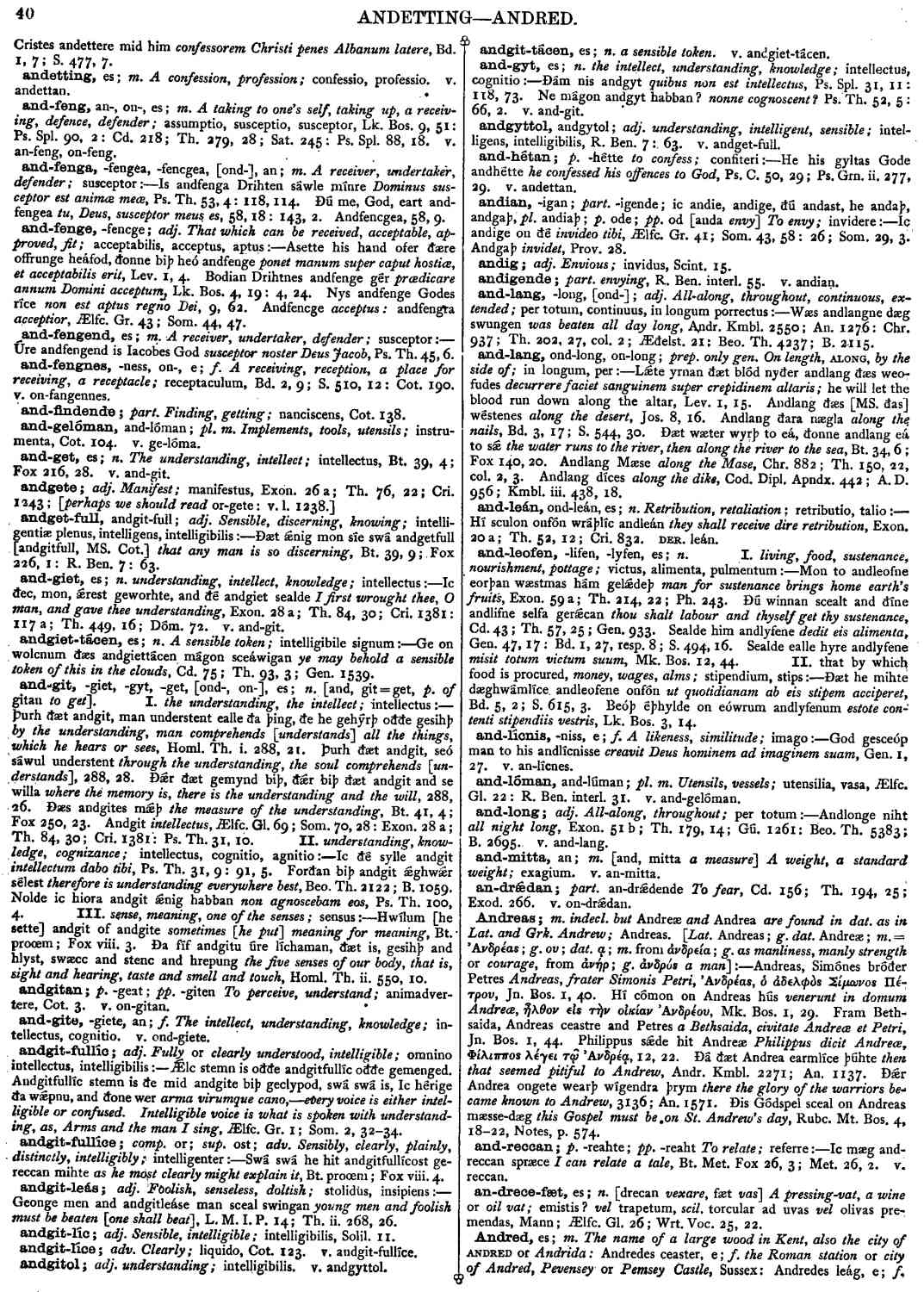Andreas
- noun [ masculine ]
-
Andreas, Simónes bróðer Petres
Andreas, frater Simonis Petri,
Ἀνδρέας, ὁ ἀδελφὸς Σίμωνος Πέτρου,
- Jn. Bos. 1, 40 .
-
Hí cómon on Andreas hús
venerunt in domum Andreæ,
ἦλθον εἰς τὴν οἰκίαν Ἀνδρέου,
- Mk. Bos. 1, 29 .
-
Fram Bethsaida, Andreas ceastre and Petres
a Bethsaida, civitate Andreæ et Petri,
- Jn. Bos. 1, 44 .
-
Philippus sǽde hit Andreæ
Philippus dicit Andreæ,
Φίλιππος λέγει τῷ Ἀνδρέᾳ,
- 12, 22 .
-
Ðá ðæt Andrea earmlíce þúhte
then that seemed pitiful to Andrew,
- Andr. Kmbl. 2271 ;
- An. 1137 .
-
Ðǽr Andrea ongete wearþ wígendra þrym
there the glory of the warriors became known to Andrew,
- 3136 ;
- An. 1571 .
-
Ðis Gódspel sceal on Andreas mæsse-dæg
this Gospel must be on St. Andrew's day,
- Rubc. Mt. Bos. 4, 18-22, Notes, p. 574 .
Bosworth, Joseph. “Andreas.” In An Anglo-Saxon Dictionary Online, edited by Thomas Northcote Toller, Christ Sean, and Ondřej Tichy. Prague: Faculty of Arts, Charles University, 2014. https://bosworthtoller.com/1726.
Checked: 1